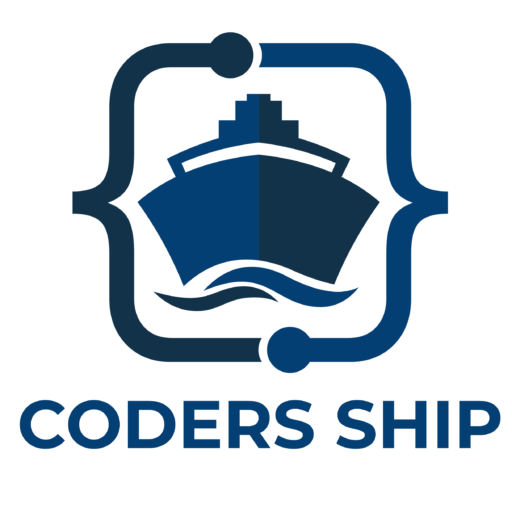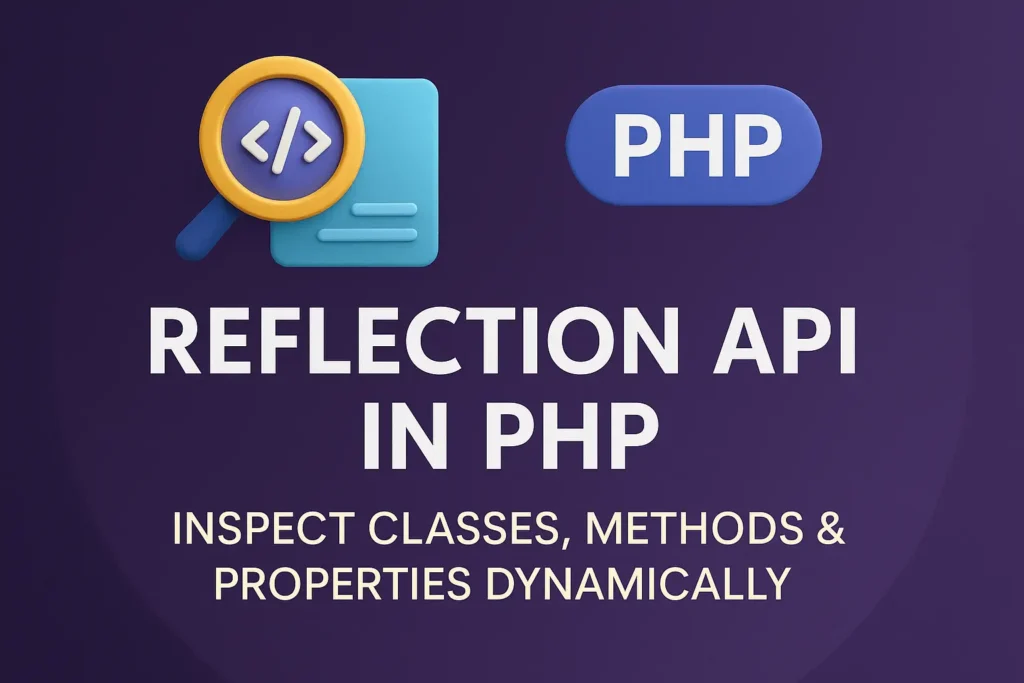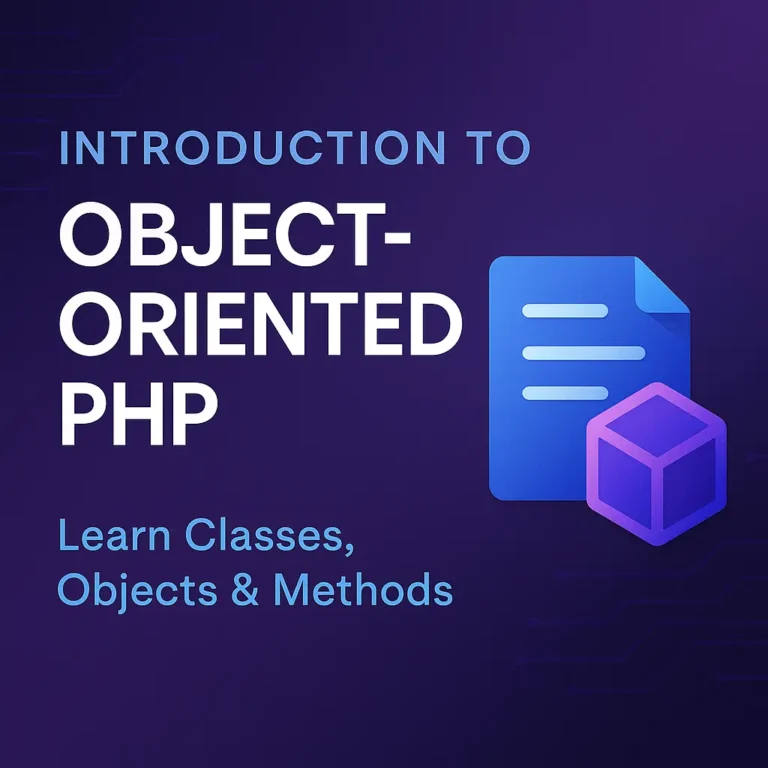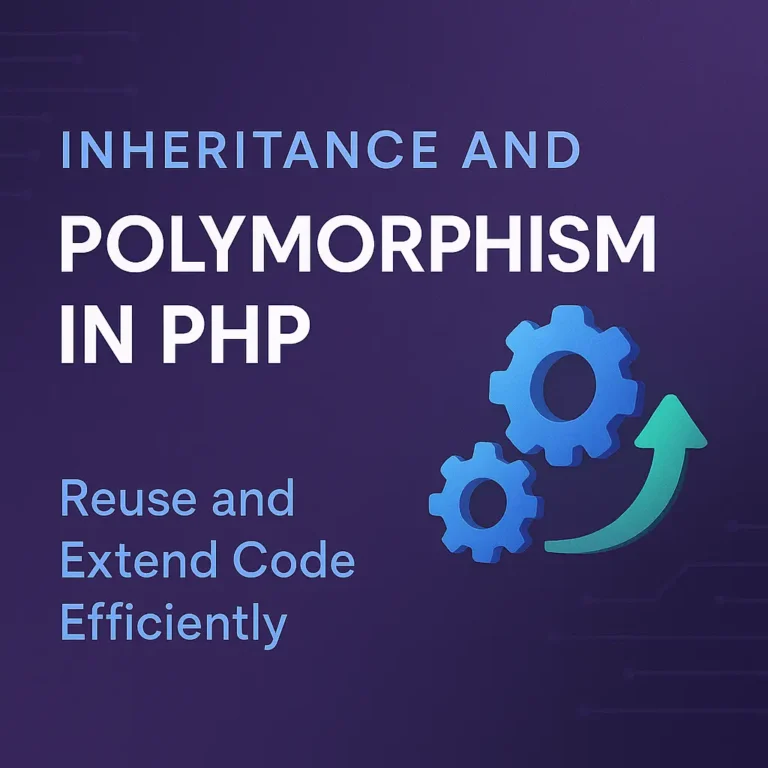This article will explore the concept of anonymous classes, how to declare them, and practical scenarios where they can be effectively used.
Declaring Anonymous Classes
Anonymous classes in PHP are declared using the new class syntax. Here’s a basic example:
$instance = new class {
public function sayHello() {
echo "Hello from anonymous class!";
}
};
$instance->sayHello(); // Outputs: Hello from anonymous class!
In this example, we create an instance of an anonymous class with a method sayHello. The class is defined in place without a name, making it ideal for temporary or one-off use cases.
Properties and Methods
Anonymous classes can have properties and methods just like regular classes:
$instance = new class {
public $property = "I'm a property";
public function getProperty() {
return $this->property;
}
};
echo $instance->getProperty(); // Outputs: I'm a property
Using Anonymous Classes
Anonymous classes shine in several scenarios, such as creating simple objects, dependency injection, and implementing interfaces or abstract classes on-the-fly.
Scenario 1: Simple Objects
Sometimes, you need a simple object for a one-off task. Instead of creating a new named class, you can use an anonymous class:
function createSimpleObject() {
return new class {
public function executeTask() {
return "Task executed!";
}
};
}
$object = createSimpleObject();
echo $object->executeTask(); // Outputs: Task executed!
This approach is particularly useful in unit tests where you might need mock objects.
Scenario 2: Dependency Injection
Anonymous classes are handy for dependency injection, especially when you need a quick implementation of an interface or an abstract class.
interface Logger {
public function log($message);
}
class Application {
private $logger;
public function __construct(Logger $logger) {
$this->logger = $logger;
}
public function run() {
$this->logger->log("Application is running");
}
}
$logger = new class implements Logger {
public function log($message) {
echo $message;
}
};
$app = new Application($logger);
$app->run(); // Outputs: Application is running
In this example, we implement the Logger interface with an anonymous class and inject it into the Application class.
Scenario 3: Implementing Interfaces or Abstract Classes
Anonymous classes can be used to implement interfaces or extend abstract classes without creating a new named class. This is useful for one-off implementations.
abstract class AbstractWorker {
abstract public function work();
}
$worker = new class extends AbstractWorker {
public function work() {
echo "Working anonymously!";
}
};
$worker->work(); // Outputs: Working anonymously!
Here, an anonymous class extends AbstractWorker and provides an implementation for the work method.
Scenario 4: Callbacks and Closures
Anonymous classes can also be used as callbacks or closures, providing a more structured approach compared to simple functions.
function executeCallback($callback) {
$callback->run();
}
$callback = new class {
public function run() {
echo "Running callback!";
}
};
executeCallback($callback); // Outputs: Running callback!
In this example, we pass an instance of an anonymous class as a callback to the executeCallback function.
Advanced Usage of Anonymous Classes
Anonymous classes can also interact with other classes and traits, enabling more complex behaviors.
Using Traits
Anonymous classes can use traits to share common functionalities:
trait SayHello {
public function sayHello() {
echo "Hello from trait!";
}
}
$instance = new class {
use SayHello;
};
$instance->sayHello(); // Outputs: Hello from trait!
This allows anonymous classes to incorporate reusable code via traits.
Adding Constructor and Properties
Anonymous classes can have constructors to initialize their properties:
$instance = new class('Hello, World!') {
private $message;
public function __construct($message) {
$this->message = $message;
}
public function getMessage() {
return $this->message;
}
};
echo $instance->getMessage(); // Outputs: Hello, World!
This example demonstrates how to pass parameters to the constructor of an anonymous class.
Extending Existing Classes
Anonymous classes can extend existing classes to override or extend their functionality:
class BaseClass {
public function greet() {
echo "Hello from BaseClass";
}
}
$instance = new class extends BaseClass {
public function greet() {
echo "Hello from Anonymous Class extending BaseClass";
}
};
$instance->greet(); // Outputs: Hello from Anonymous Class extending BaseClass
This allows for temporary modifications to existing class behavior without permanent changes.
Practical Applications of Anonymous Classes
Anonymous classes offer flexibility in various real-world scenarios. Here are a few more examples:
Unit Testing
In unit testing, anonymous classes can quickly create mock objects or stubs without cluttering the codebase with multiple named classes.
function testFunction(Logger $logger) {
$logger->log("Test message");
}
$mockLogger = new class implements Logger {
public function log($message) {
echo "Mock log: $message";
}
};
testFunction($mockLogger); // Outputs: Mock log: Test message
Middleware in Web Applications
Anonymous classes can be used to define middleware components in web applications, allowing for dynamic and on-the-fly creation of middleware logic.
function handleRequest($request, $middleware) {
$middleware->process($request);
}
$request = 'User request data';
$middleware = new class {
public function process($request) {
echo "Processing request: $request";
}
};
handleRequest($request, $middleware); // Outputs: Processing request: User request data
Event Handling
Anonymous classes can serve as event handlers in systems that rely on event-driven architectures, providing a clean and concise way to handle events.
class EventDispatcher {
private $listeners = [];
public function addListener($event, $listener) {
$this->listeners[$event][] = $listener;
}
public function dispatch($event, $data) {
if (isset($this->listeners[$event])) {
foreach ($this->listeners[$event] as $listener) {
$listener->handle($data);
}
}
}
}
$dispatcher = new EventDispatcher();
$listener = new class {
public function handle($data) {
echo "Handling event with data: $data";
}
};
$dispatcher->addListener('event.name', $listener);
$dispatcher->dispatch('event.name', 'Event Data'); // Outputs: Handling event with data: Event Data
Conclusion
Anonymous classes in PHP provide a versatile and powerful tool for developers, allowing for more concise, flexible, and maintainable code. By understanding how to declare and use anonymous classes, developers can take advantage of this feature to create more dynamic and efficient PHP applications. Whether for simple objects, dependency injection, or implementing interfaces, anonymous classes offer a robust solution for modern PHP development.






